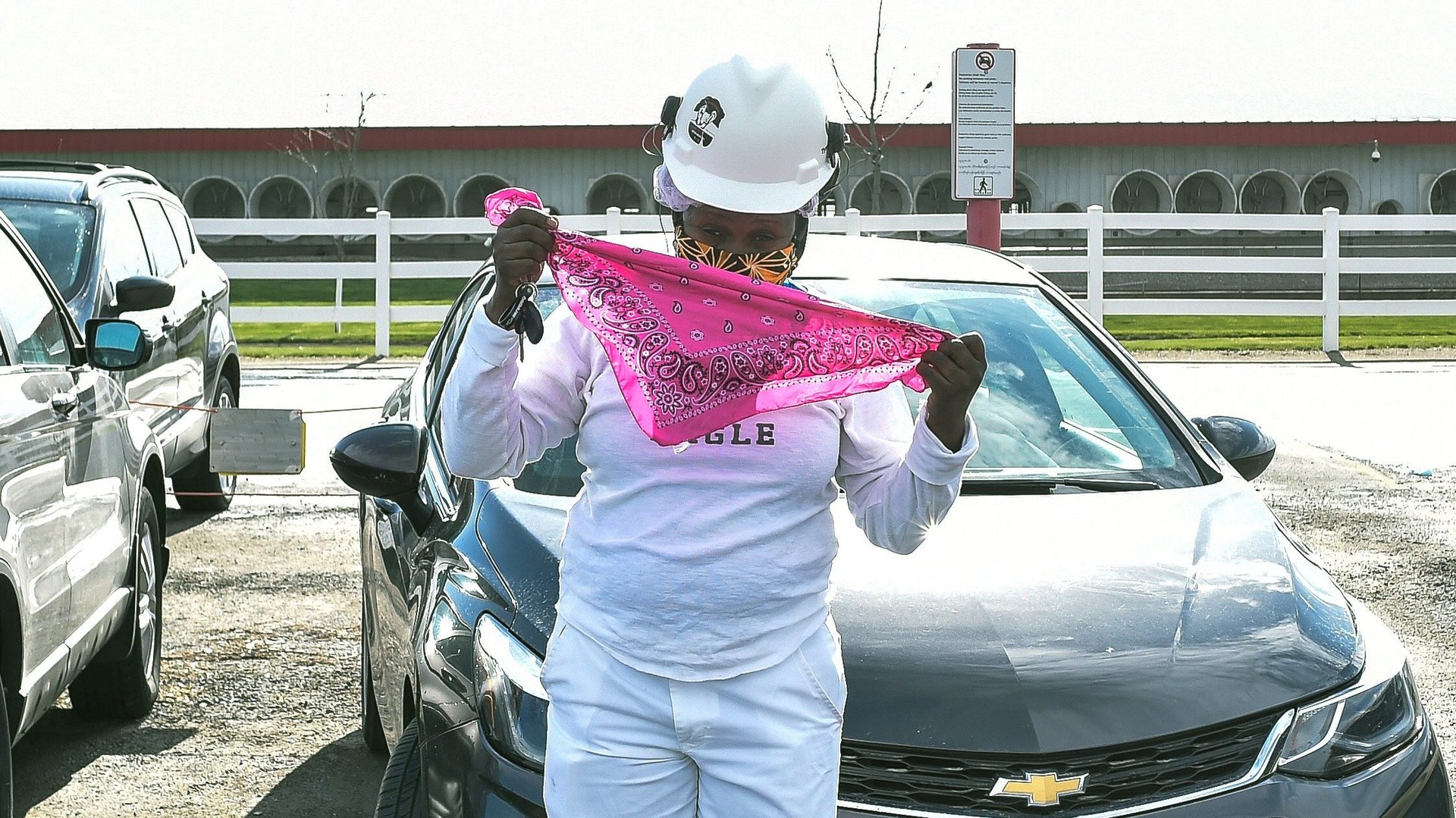A labor shortage is forcing Tyson Foods to become a more humane employer
As the labor shortage continues to ripple through the food industry, Tyson Foods, one of the largest meatpacking companies in the US, is committing to improve workplace conditions to attract and retain workers—in an industry that has long been scrutinized over the treatment of its employees.


As the labor shortage continues to ripple through the food industry, Tyson Foods, one of the largest meatpacking companies in the US, is committing to improve workplace conditions to attract and retain workers—in an industry that has long been scrutinized over the treatment of its employees.
“Labor is our number one challenge,” said Donnie King, Tyson Foods CEO, on the latest earnings call with investors and analysts on Aug. 9. “We are accelerating efforts to make Tyson the most sought-after place to work.”
He spelled it out: The Arkansas-based company, which has over 120,000 employees, has hiked wages up to $22 an hour, piloted child care facilities at some of the plants, added more medical clinics, expanded educational benefits, created flexible shifts, and invested in technology to automate the most difficult parts of the job.
Amid soaring demand for its products as restaurants and hotels ease Covid-19 restrictions, Tyson continues to be understaffed at meatpacking facilities. Because of the labor shortage, “we are more inefficient than we have historically been,” said King, where the company will take “six days to get five days worth of work.” He added that the delta variant of Covid-19 is also playing a factor in keeping workers away.
Food and agriculture workers face some of the highest risks of getting Covid-19 due to working in close conditions as well as socioeconomic factors like being uninsured and living in crowded houses. That helps explain why last week Tyson announced a mandatory vaccination policy for all workers, both in the offices and at the plants. The hourly workers who get vaccinated will receive a $200 incentive. Since the start of the pandemic, the company says it has invested about $700 million in health and safety measures.
The pandemic has laid bare the gaps between the treatment of essential workers who have to work through unsafe conditions and those who get to work from home. The labor market situation—where workers en masse are looking for better and safer jobs—is forcing employers, particularly those of low-wage workers, to commit to improving workplace conditions via pay and benefits. The new power of labor could be particularly dire for a company like Tyson where workers may want to move to a job that not only pays more but is safer and less strenuous.
Workplace conditions plagued Tyson long before Covid-19
The pledge to improve wages and conditions comes after years of scrutiny by regulators and activists over the working conditions of the US meat industry—but it is also not the first time the company has agreed to improve workers’ situations.
In 2017, a report from Oxfam America, an anti-poverty nonprofit group, found workers at the four largest US poultry companies—Tyson Foods, Sanderson Farms, Perdue Farms, and Pilgrim’s Pride—were routinely denied bathroom breaks, with some being forced to wear adult diapers to work. In response, Tyson, in collaboration with Oxfam Farms and the United Food and Commercial Workers Union, committed to making changes to the workplace, including reducing worker injuries and illnesses as well as hiring plant trainers.
The company has some of the most injury-prone jobs in the US. The injuries among poultry workers come from the strenuous cutting and hanging motions required to process chickens , which, particularly when done at high speeds, can lead to carpal tunnel syndrome. The fast speed demanded of the workers also increases the risk of cuts and gashes, according to a report from the Southern Poverty Law Center, a nonprofit group.
That said, working conditions in the industry are getting safer. The injury incident rates for animal slaughtering and processing decreased from 4.3 cases per 100 full-time employees in 2018 to 4.0 in 2019, though still well above the 2.8 per 100 average for all private employers, according to US Bureau of Labor Statistics data.